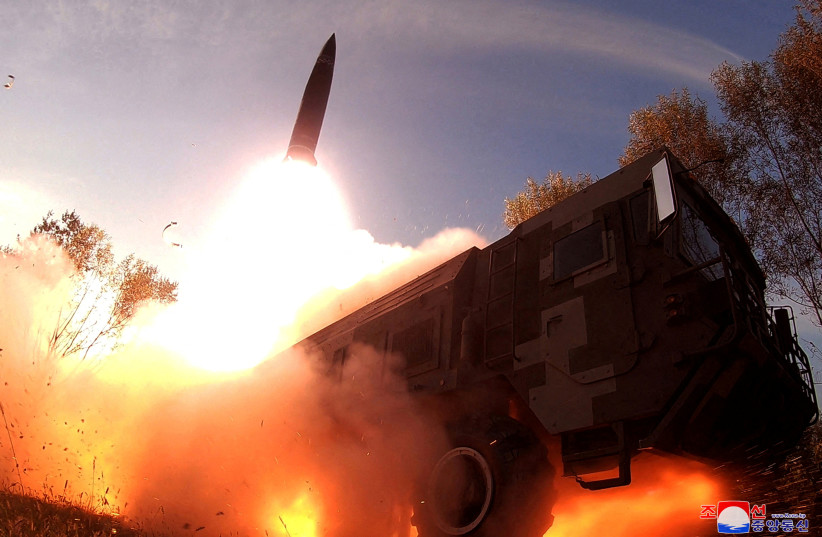North Korea launched two ballistic missiles eastward early on Wednesday, Japan's and South Korea's militaries said, just hours after a US ballistic missile submarine arrived in a South Korean port for the first time in four decades.
The USS Kentucky, an Ohio class nuclear-armed ballistic missile submarine (SSBN), made port in the southeastern city of Busan. Its arrival coincided with the start of talks among the allies to coordinate responses in the event of a nuclear war with North Korea.
South Korean President Yoon Suk Yeol, aboard the submarine, said its arrival highlighted the alliance's resolve to deploy US strategic assets and improve the capabilities of the American nuclear umbrella.
"We will make it impossible for North Korea to ever think of a nuclear provocation, and have clearly warned that if it does, it will lead to the end of its regime," Yoon said in a speech.
Both of the missiles appeared to have fallen outside Japan's exclusive economic zone, the Japanese Defence Ministry said.
South Korea's Joint Chiefs of Staff (JCS) called on the North to cease such launches.

"We strongly condemn North Korea's successive ballistic missile launches as grave provocative acts that undermine the peace and stability of the Korean Peninsula as well as the international community, and are a clear violation of UN Security Council resolutions," the JCS said in a statement.
The US military said it was aware of the missile launches and was consulting closely with its allies and partners.
What are the political implications of the firing?
The launches do not appear to pose an immediate threat to the United States or to its allies, but the events highlight the destabilizing impact of North Korea's illicit weapons program, the US Indo-Pacific Command said in a statement.
The first missile reached an altitude of 50 km (31 miles) and covered a range of 550 km, while the second one rose as high as 50 km and flew 600 km, Japanese Defence Minister Yasukazu Hamada told reporters.
Japan lodged a protest against the missile launches through diplomatic channels, he said.
The firing comes nearly a week after North Korea tested its latest Hwasong-18 intercontinental ballistic missile, a launch Pyongyang said was a warning to the United States and other adversaries.
Also on Tuesday, a US soldier facing disciplinary action fled across the inter-Korean border into North Korea. The soldier is believed to be in North Korean custody, Washington said, creating a fresh crisis between the two foes.
"North Korea's latest firing of ballistic missiles is probably unrelated to an American soldier crossing the inter-Korean border, but such an incident doesn't help matters either," said Leif-Eric Easley, a professor at Ewha University in Seoul.
North Korea "undoubtedly opposes" a new US-South Korea nuclear war planning group that met for the first time on Tuesday, as well as the visit of the US nuclear ballistic missile submarine, he said.
